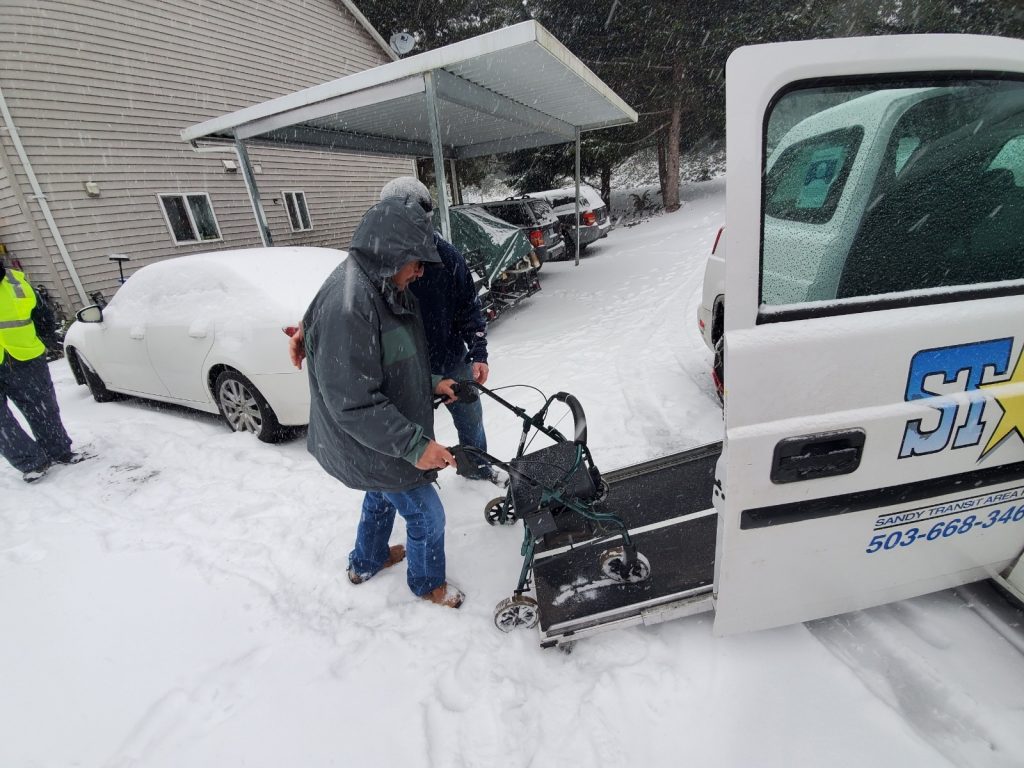With 5,947 passengers in January and 5,300 in February, ridership remains around 45-50% lower than pre-COVID years. As we approach the one year anniversary and business and schools begin to reopen, it will be interesting to watch the new post COVID-19 ridership trends. February is typically a lower ridership month due to weather patterns and this year was no exception. SAM reduced service for four days, with two of those days being complete cancellations due to ice.
As in previous years, SAM employees were exemplary during the storm. Even during days when service was cancelled, dispatchers who could make it in to work did. They covered the telephones and were prepared to attempt to pick up passengers in life sustaining situations if necessary. As you can see from this photo, not one person was denied a life sustaining appointment such as dialysis.

As mentioned last month, capacity restrictions have forced SAM to put out extra vehicles and at times, turn down passengers. For example, in the past, one small cut-a-way vehicle would be able to accommodate several passengers, but with COVID-19 restrictions, 2 vehicles are often dispatched. As businesses open and people return to work and school, SAM expects to send “sweeper” vehicles at peak service so no one is left behind. To cover the additional costs of added cleaning, sweeper vehicles and PPE, Transit applied for $100,000 for operations, a new “sweeper” vehicle and a replacement vehicle for a service vehicle that has been used daily during COVID for added capacity. The total amount applied for is $265,000 through the CARES ACT Needs Based application process and SAM was recently awarded the full amount.
In January, the STFAC grants for Federal funds were submitted. SAM requested a modest increase in Federal funding and $45,000 to use as match for a vehicle already funded through a different Federal program. SAM was successful and was awarded the full request in funding, a total of $622,064. Considering that SAM will likely not collect fares until capacity restrictions are lifted, receiving this funding in full and the additional CARES ACT funding allows SAM to continue at current service levels and implement the same stringent cleaning/disinfecting protocols. These protocols, and the speed with which they were enacted, have allowed SAM to operate at full capacity for a year with zero COVID cases reported.

